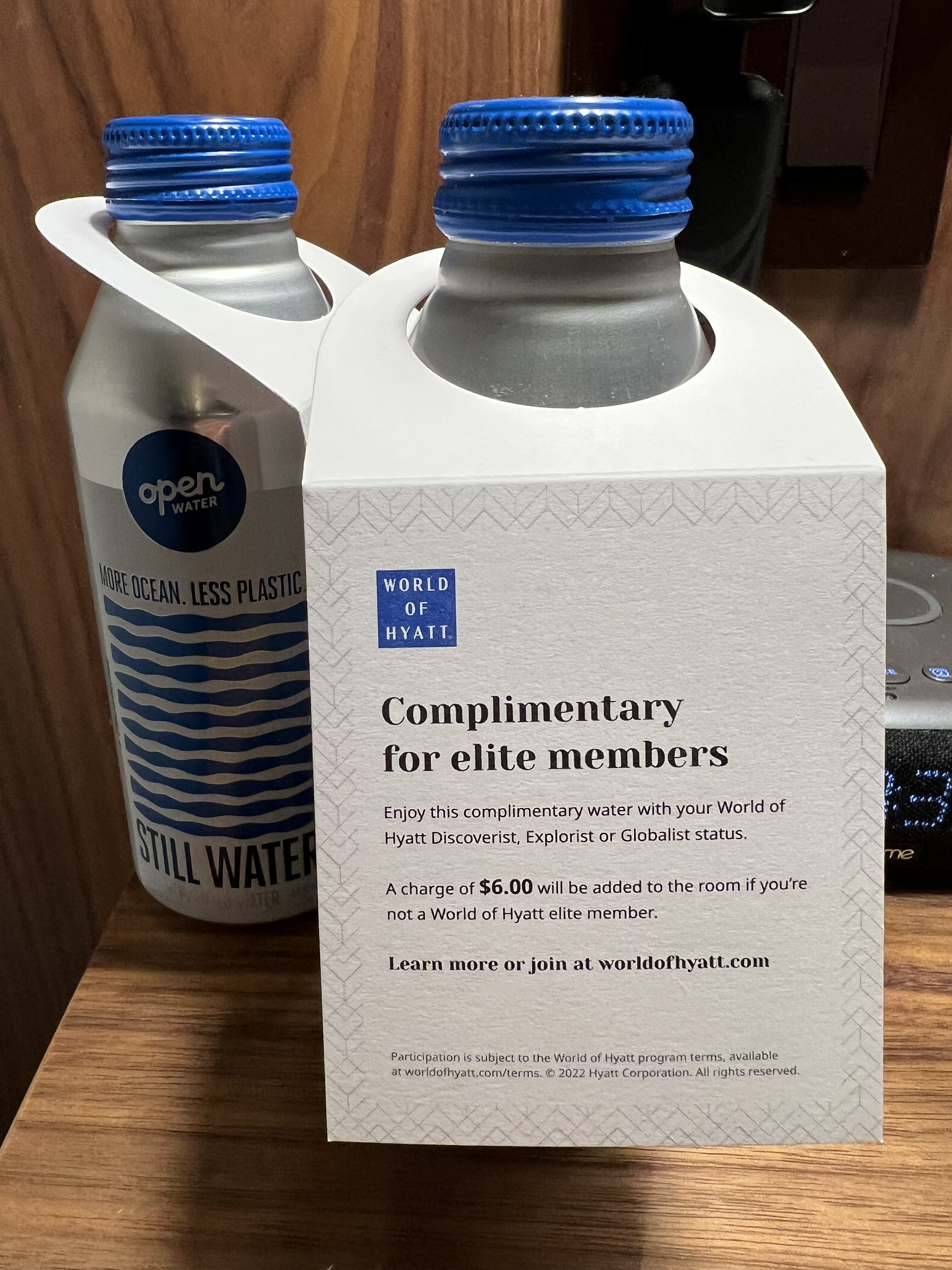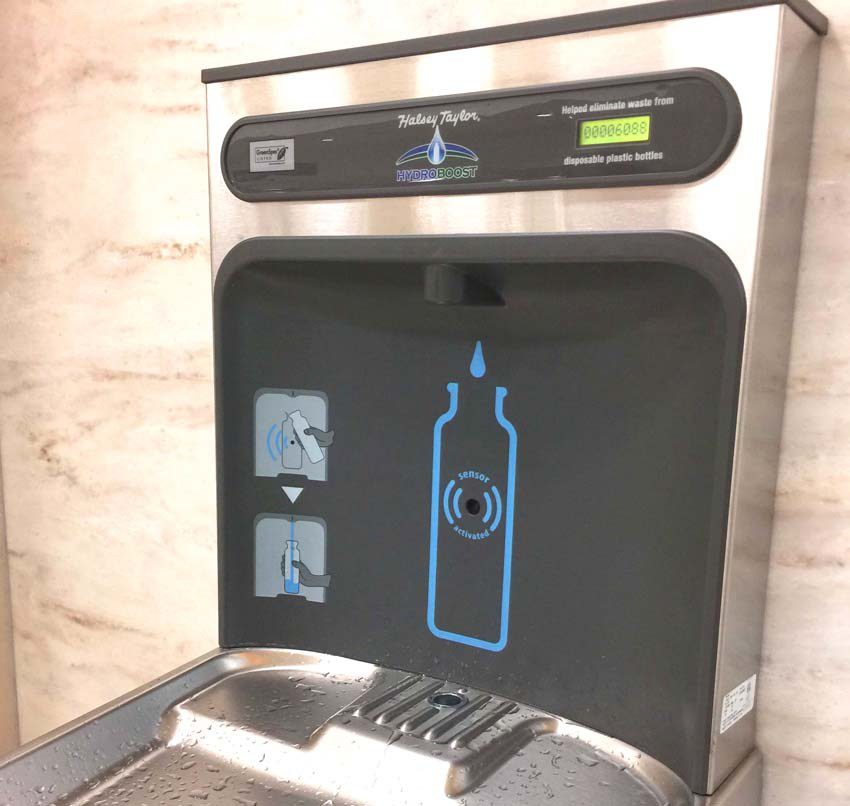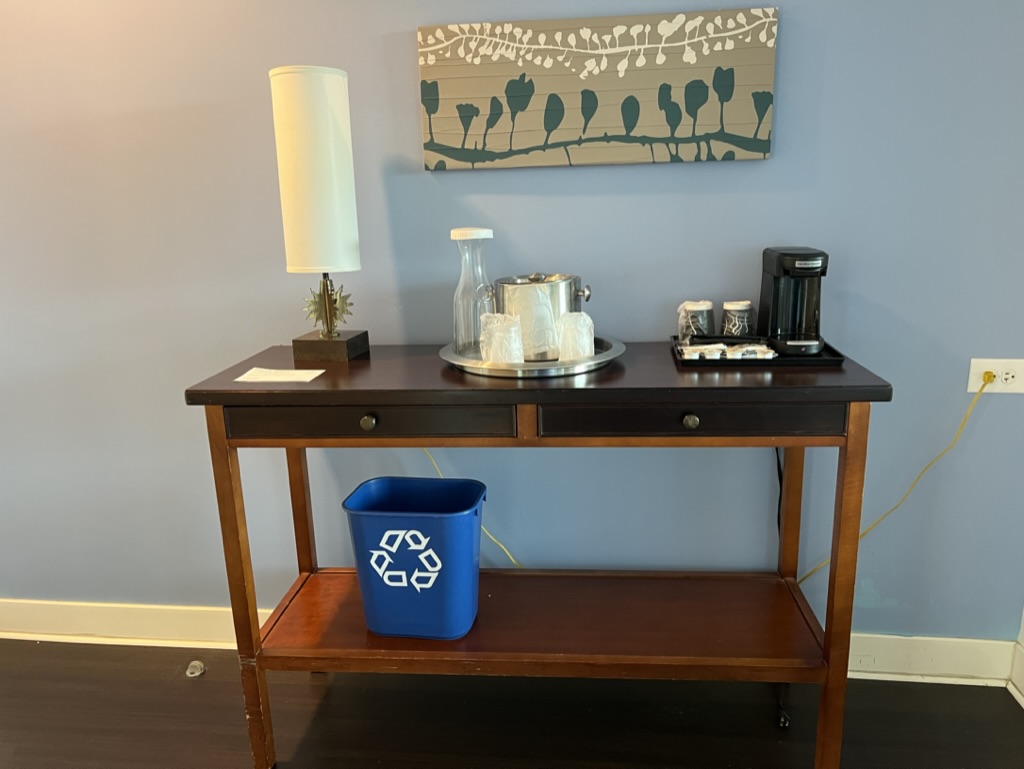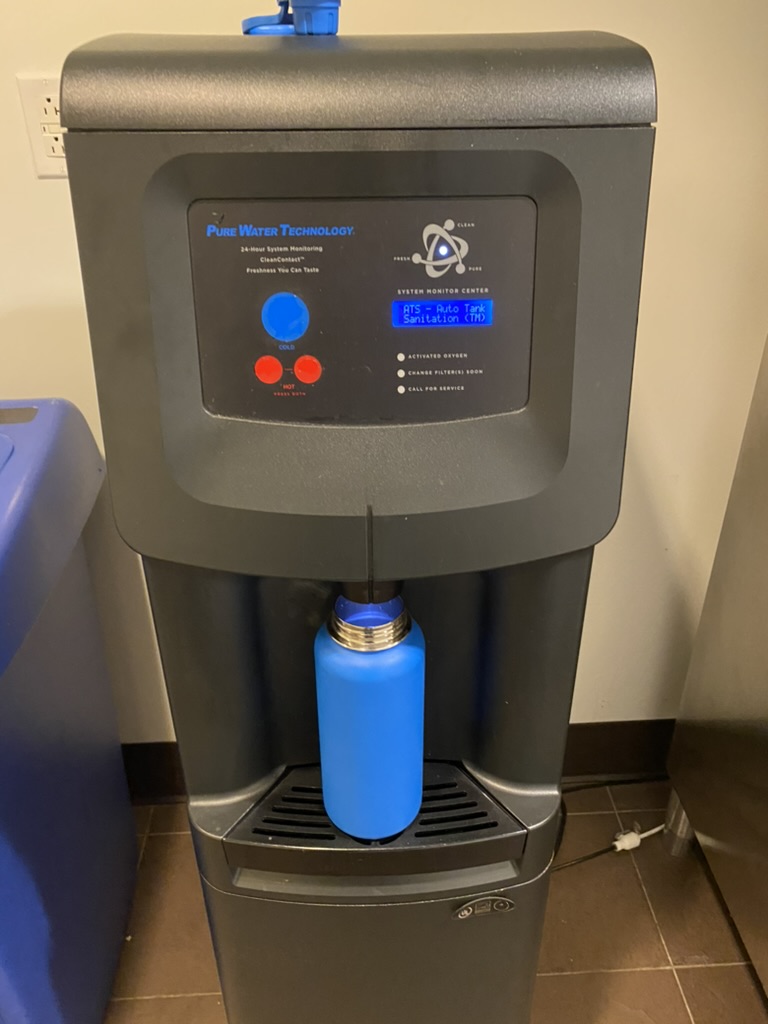My wife and I occasionally have something to complain about when we stay at hotels. We’ve experienced rooms lacking enough pillows, power outlets, lights, or towels. Then there are the awkward setups—rooms with just one nightstand, leaving one person without a place for their essentials, or layouts where only one person in bed can comfortably watch TV. And don’t even get me started on rooms with a single chair, forcing someone to eat, work, or get dressed on the bed.
But sometimes, a hotel does something so intuitive that you wonder why it took so long to become standard. That’s precisely what happened during a stay at a Hotel Indigo property.
The Bottled Water Debate
For years, bottled water has been a staple amenity in hotel rooms. Many hotels include it as part of a resort or destination fee, and loyal customers with hotel status receive complimentary bottles as a token of appreciation. While convenient, bottled water comes with a significant environmental cost—a fact that’s becoming harder to ignore.

If I remember to bring my refillable water bottle, I usually fill it at a dispenser before leaving the airport. Water bottle fillers are increasingly common as people carry reusable bottles everywhere. Yet, at hotels, bottled water has traditionally been the only option if you want something other than bathroom tap water.

That changed during our recent stay at Hotel Indigo.
A Better Alternative: Hydration Stations
Hotel Indigo is part of the InterContinental Hotels Group (IHG), which is known for creating properties that reflect the local culture and character of their neighborhoods. Boutique design and thoughtful touches often set these hotels apart. But during our stay, a minor feature caught our attention.
Instead of the usual setup of two complimentary water bottles, our room featured an empty carafe alongside the coffee maker, ice bucket, and glasses. A card on the lid explained the change: to reduce waste from single-use plastics, the hotel provided hydration stations with filtered water dispensers.

The Environmental Impact of Bottled Water
While some may view the removal of bottled water as a cost-cutting measure, it’s hard to ignore the environmental benefits. Plastic bottles contribute to waste and pollution, even when recycled. Offering hydration stations not only reduces this impact but also provides a more sustainable and practical solution for guests.
The dispenser at this hotel was located one floor below ours, next to the ice machine. The water was chilled, a nice touch compared to the room-temperature bottles often provided. While this setup required a bit more effort, it felt like a step in the right direction for the environment and guest convenience.

Convenience Versus Tradition
For travelers accustomed to complimentary bottled water, the change may feel like a downgrade. However, hydration stations offer unlimited refills and a chilled option, which bottled water doesn’t always provide. Packing a reusable water bottle ensures you can take full advantage of these stations while minimizing your environmental footprint.
Final Thoughts
As hotels increasingly adopt sustainable practices, it’s exciting to see creative solutions like hydration stations becoming more common. While we encountered this setup at Hotel Indigo, I’m seeing similar initiatives at other hotels during our travels. It’s an easy, eco-friendly upgrade that benefits guests and the planet.
Have you seen hydration stations at hotels? Share your thoughts in the comments below.
Cover Image by Willfried Wende from Pixabay
Want to comment on this post? Great! Read this first to help ensure it gets approved.
Want to sponsor a post, write something for Your Mileage May Vary, or put ads on our site? Click here for more info.
Like this post? Please share it! We have plenty more just like it and would love it if you decided to hang around and sign up to get emailed notifications of when we post.
Whether you’ve read our articles before or this is the first time you’re stopping by, we’re really glad you’re here and hope you come back to visit again!
This post first appeared on Your Mileage May Vary

7 comments
The amount of plastic in a bottle is minimal. I go even farther. I save the bottle and reuse it at least once if I don’t drink directly from the bottle.
In San Francisco airport, bottled water in a plastic bottle is banned. Instead, merchants sell bottled water in a metal can, which wastes even more energy if disposed of.
In many cities, thin plastic bags are now banned. They are replaced with thick plastic bags, which are thrown away after one use. This is WORSE that the previous situation. When thin plastic bags were used, I would always reuse them, often for trash, sometimes reused as a shopping bag. Politicians are stupid for passing these dumb laws.
Sounds like just another way for hotel to cut amenities in the name of “going green” If they were really serious about it they would, at a minimum, provide the water stations on every floor.
Disagree. If I’m relaxed and looking for my bottle of water, I don’t want to have to redress, put on shoes, go out of my room, go to another floor, and fill up a container. I’m in a hotel to relax, I don’t want an errand to run.
Maybe they can go green and time your shower to 3 minutes, or only allow you to flush 3 times a day.
That is nothing about going green but rather saving costs.
Plastic is killing the planet, and plastic water bottles are a big part of the problem. Who has traveled and not seen plastic water bottle trash scattered about? There is nothing special about bottled water and rarely are there not options that are as good or better. Most tapwater is safe and, if in doubt, it can be easily treated, avoiding the need for wasteful plastic water bottles. Or, yes, hotels could easily provide treated water stations, and people can just use the water bottles we should all be carrying when we travel. Another reason not to use plastic water bottles is because who knows what is leaching into the water from the plastic.
So, in the interest of going green AND providing amenities to their customers, why don’t hotels do both? Provide water stations for those who want to use them as well as bottles for people who don’t. Seems like a no-brainer to me. Personally, I think it’s just another way to virtue signal and save money. ‘Customer service’, not really.
I’m with @Patrick. This is just another scam to short the customer. As another example, if hotels want to provide decent toiletries without the dorm style containers and without major plastic waste they could go with biodegradable containers.